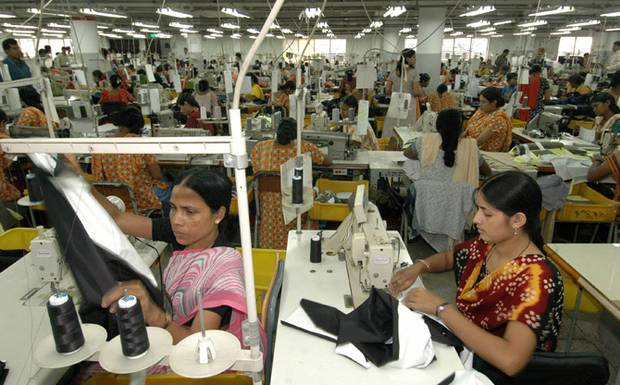The Head of European Union Delegation in Dhaka is ‘not satisfied’ over the progress on safety and workers’ right in Bangladesh’s ready-made garment sector.
“I am not satisfied and why would we be satisfied,” Ambassador William Hanna told journalists on Saturday on the sidelines of a women day celebration in Dhaka with garment workers.
He, however, acknowledged that there had been some progress but added: “but lots more need to be done.”
“I see change happening but it has to be continued,” he said.
The 27-nation bloc is the largest importer of Bangladesh’s ready-made garment products.
After the Rana Plaza collapse in April last year, in which more than 1100 garment workers died, the EU laid out a roadmap to ensure factory safety and workers rights in Bangladesh.
The US revoked duty-free access for Bangladesh products but because garments were not amongst those enjoying the privilege, it did not affect much.
Bangladesh’s ready-made garments enjoy duty-free access in EU.
The EU did not revoke that but asked Bangladesh to improve safety in factories and give more rights to the workers.
The government says they had already fulfilled 13 of the 16 points listed in the EU action plan that include revision of the labour law and creating posts for factory inspectors.
Hanna said Bangladesh would face uncomfortable questions from the global community as it approaches one year of the Rana Plaza collapse.
He said two members of the European parliament would also come to Dhaka next week and they would also look into the factory issues.
Hanna said the first question the government would face relates to compensation of the victims — he said it it was “not clear” to him what happened to the promised compensation.
He noted some progress has been made in improving inspections, labour law reform and the raise in workers’ minimum wage.
“Changes are happening, but slowly,” he said.
But he said in some cases problems were arising that have to be addressed.
“…Even if that means (after inspections) factories should close down, they should close down.”
He said only safe building structure would not do, “sound practices” must be followed inside the factories.
“It should be safe, people should be trained, and not leaving inflammable products on the floor,” Hanna said.
He said minimum wages had been increased but all factories were yet to apply it.
Even some factory owners were not accepting labour unions.
“Owners have to accept. It needs change in attitudes. Owners have to accept and unions have to be there, that requires a big change in mindset,” he said.
He asked factory owners to keep up their efforts over the next few weeks to portray a “promising” picture.
Care Bangladesh that implements a EU project on empowering garment workers organised the function to celebrate the International Women Day.
Nearly 80 percent of the more than 4 million garment workers are women in Bangladesh.
Source: bdnews24










